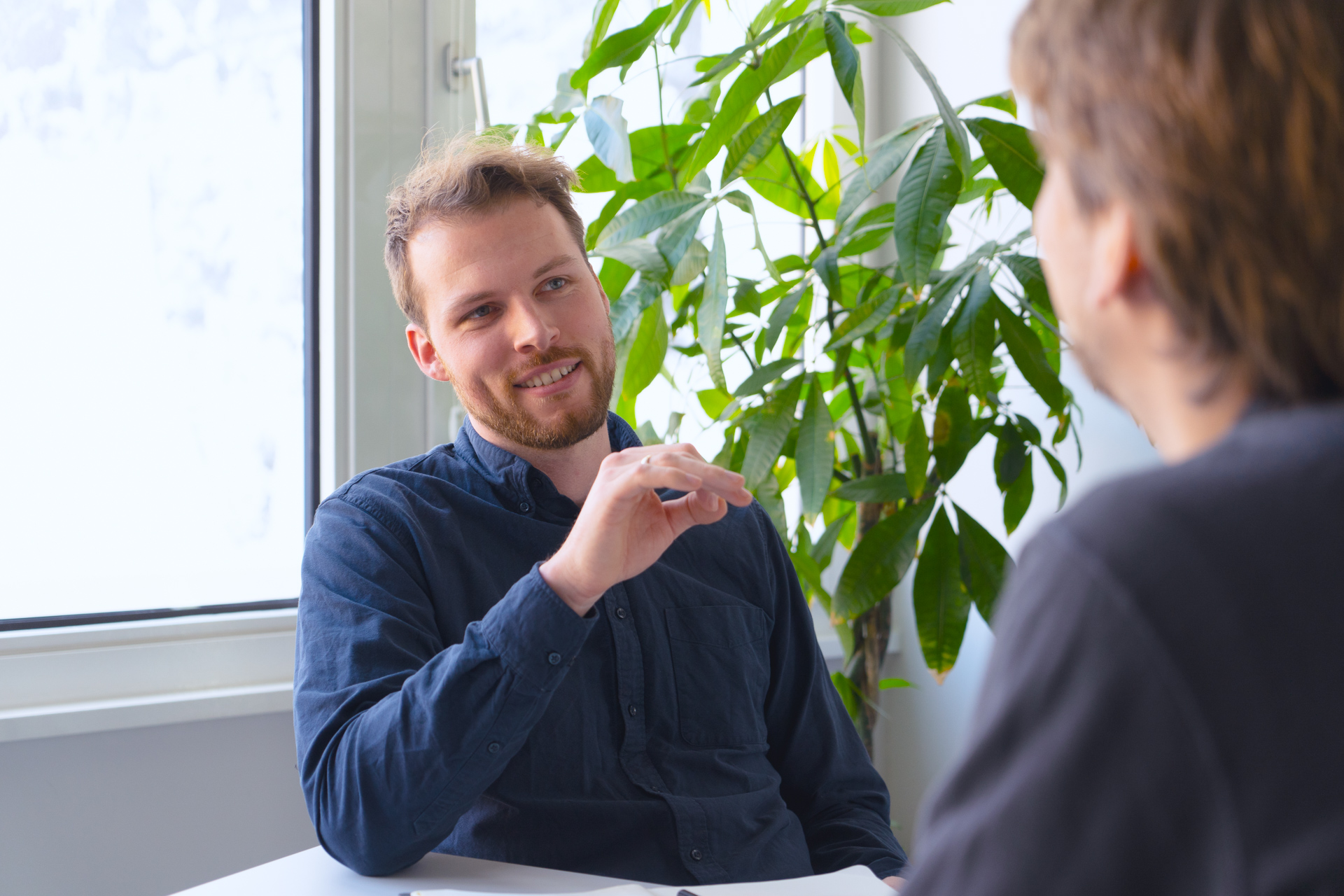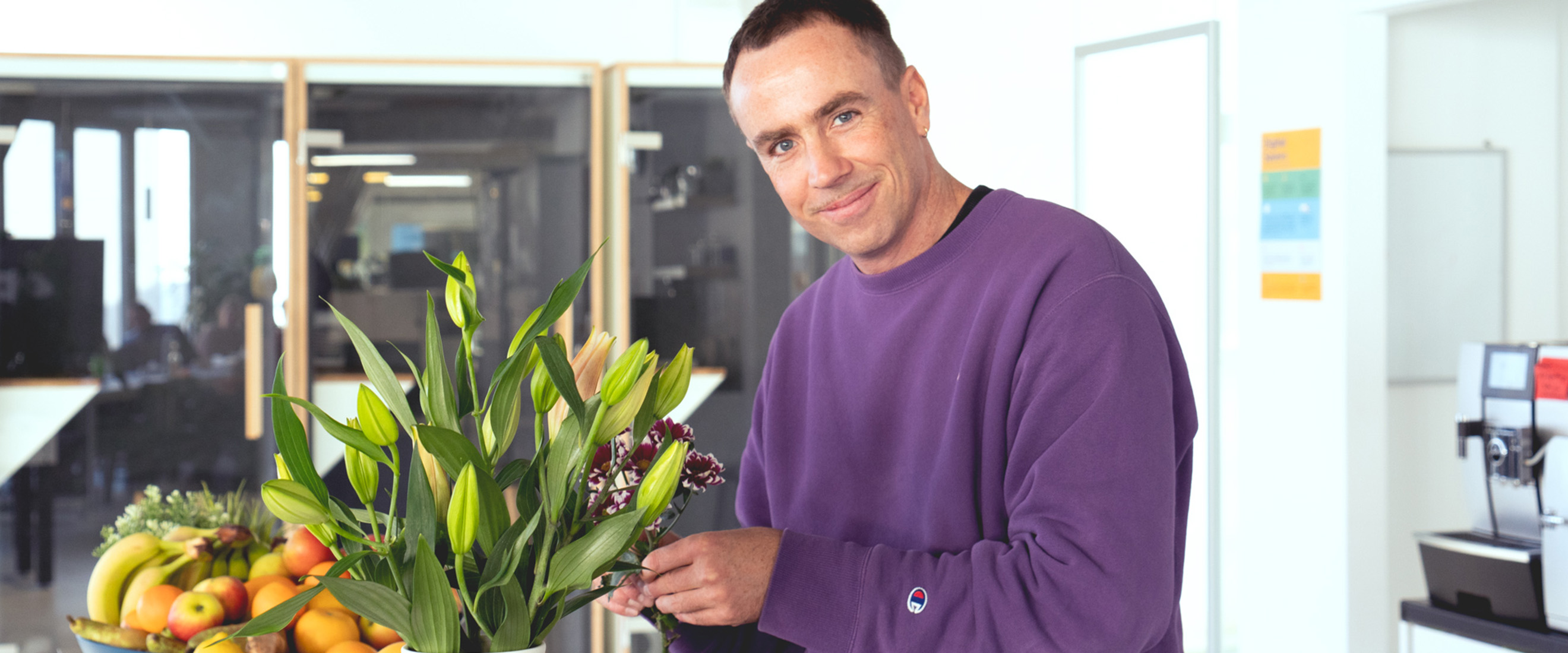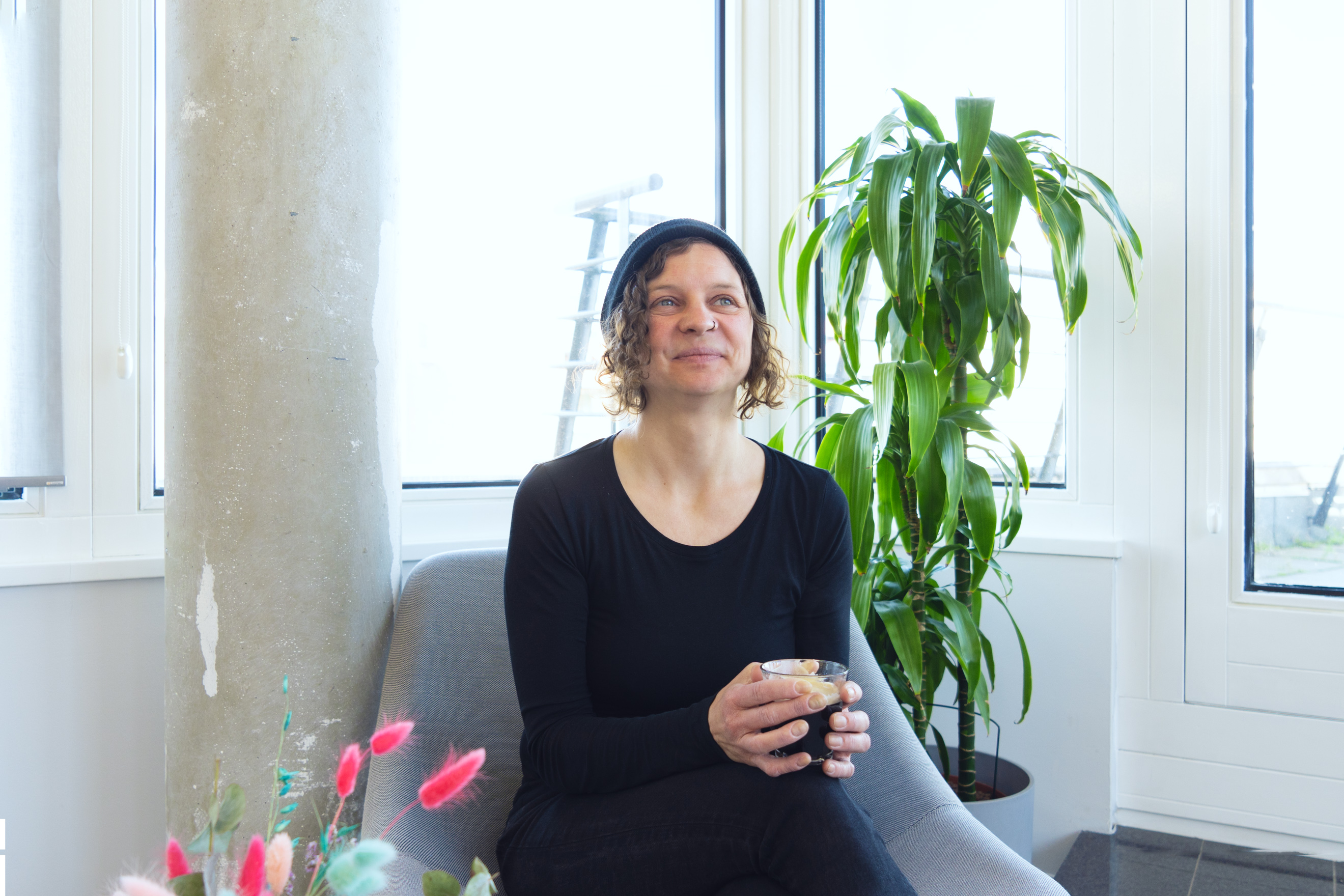
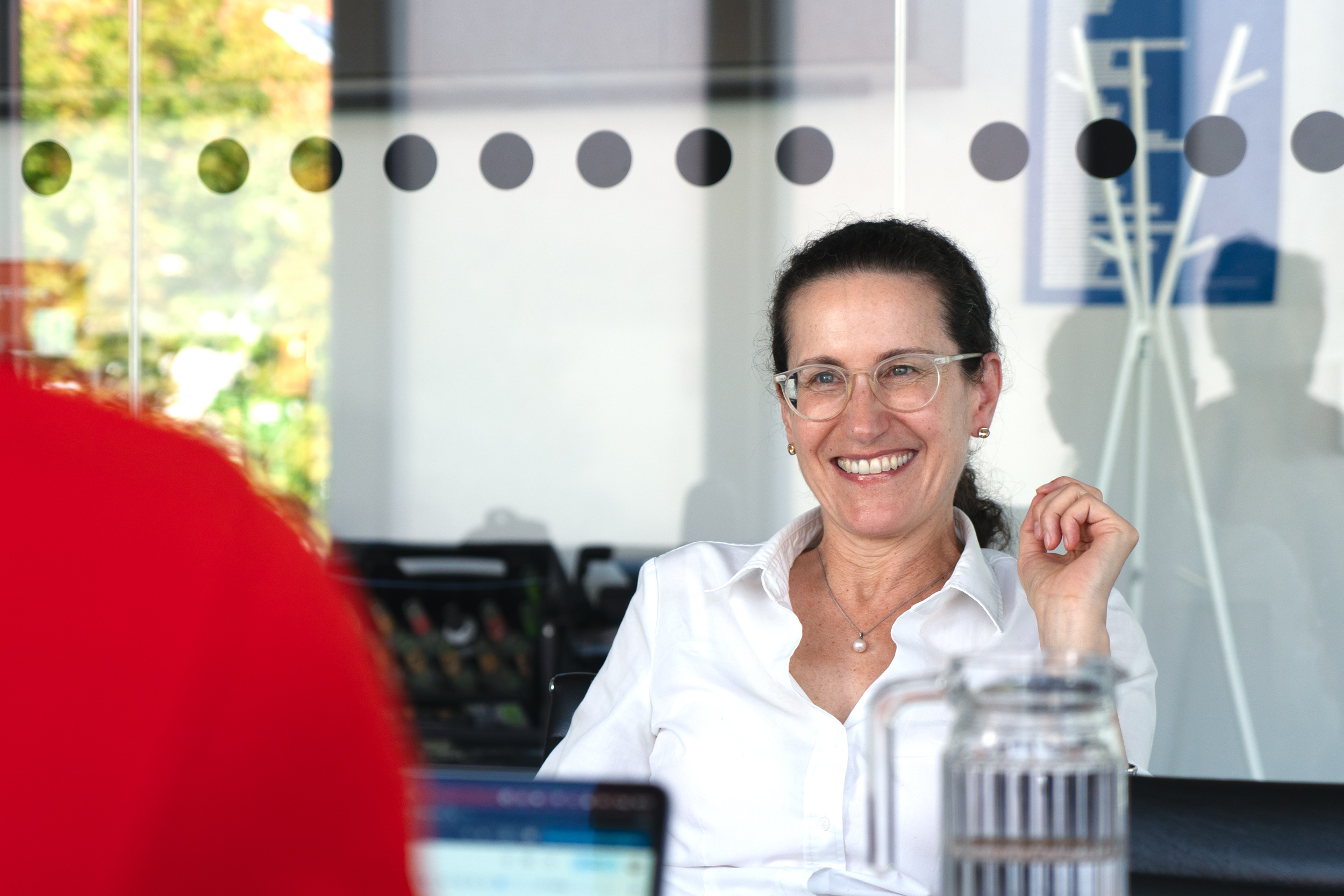
A cup of coffee with… Anja, CFO at DigitalService
As Chief Financial Officer (CFO), Anja deals with several topics at once: from drafting contracts with our project partners to empowering colleagues within the organization. Over a cup of coffee, she reveals how this “can do” mindset came about and why her skiing career is coming to an end.
Overall, the assumption that IT projects can be planned years in advance is no longer realistic in my opinion. Developments are simply too rapid for that.
Hi, Anja. At the DigitalService offsite meeting, you had this to say about the organization as a whole: “We work in a system full of paradoxes.” Can you please explain what you meant by that?
Sure! We work on behalf of the public sector. Here in Germany, the system is designed to avoid legal risks. At the same time, DigitalService has been tasked by this system to think outside of the box and to take an agile and iterative approach – a way of working that is then perceived as risky. There’s an inherent contradiction there.
What is risky about this way of working?
The iterative approach involves exploring various options. So there’s a chance you may take some missteps along the way. This is perceived as risky, although actually it’s not – it’s helpful to identify what isn’t working early on so that you can adjust your priorities accordingly. Overall, the assumption that IT projects can be planned years in advance is no longer realistic in my opinion. Developments are simply too rapid for that. With that kind of approach, projects end up being much more expensive and they take longer. Many of our project partners do grasp this at a fundamental level. But they still have some concerns when we actually propose working iteratively.
How does this impact you in your role? As CFO, you’re not directly involved in what is being developed.
I create the conditions needed for us to work in this way by handling the contract drafting. You also have to bear in mind that DigitalService is not publicly funded. In other words, we don’t receive X amount per year to use as we see fit. Rather, we conclude contracts for each project. Which brings us back to the paradox: these contracts must enable us to apply our working method while giving our clients something approaching the level of certainty they need. Administrations like to ensure they get this certainty by concluding what are known as work contracts. Essentially, these contain a detailed statement of work with particular features or partial services that can be checked off as completed at the end. But this is really just pseudocertainty in my eyes.
Could you please expand on that?
Sure. The iterative process is all about defining a challenge that needs to be addressed, but not necessarily setting out in advance the individual steps to be taken in a years-long project. In agile iterative development, you gradually identify the features needed. Especially over a long development period, this means you can respond to changing external circumstances. This flexibility offers far greater certainty of a useful outcome because we can adjust more dynamically based on what we find out along the way. A list with everything detailed in advance typically doesn’t work.
What type of contracts do you encourage clients to opt for?
My DigitalService colleagues and I try to convince them to go with service contracts in which we jointly define with them the objective that should be met and the problem the respective project should address and resolve. But we don’t detail the features we may use to arrive at these solutions. Our clients, however, are used to work contracts. These promise them certainty in terms of time and budget, because they can “check off” each line in a detailed statement of work. But we know that this doesn’t always give them the certainty they crave – just look at the many public construction projects conducted on the basis of work contracts that then spiral out of control. Still, we do have to work on convincing clients of the benefits of service contracts.
How do you bring them round to your way of understanding here?
By showing them that we offer certainty in other ways. We involve our project partners in development, and make them product owners to a certain degree. For example, we provide them with regular progress updates and discuss the next steps with them: What are our options for moving forward? What artifacts or features will we build next? We write these provisions for steering and regular involvement into our contracts. This gives our project partners the reassurance they need that their project is moving in the right direction.
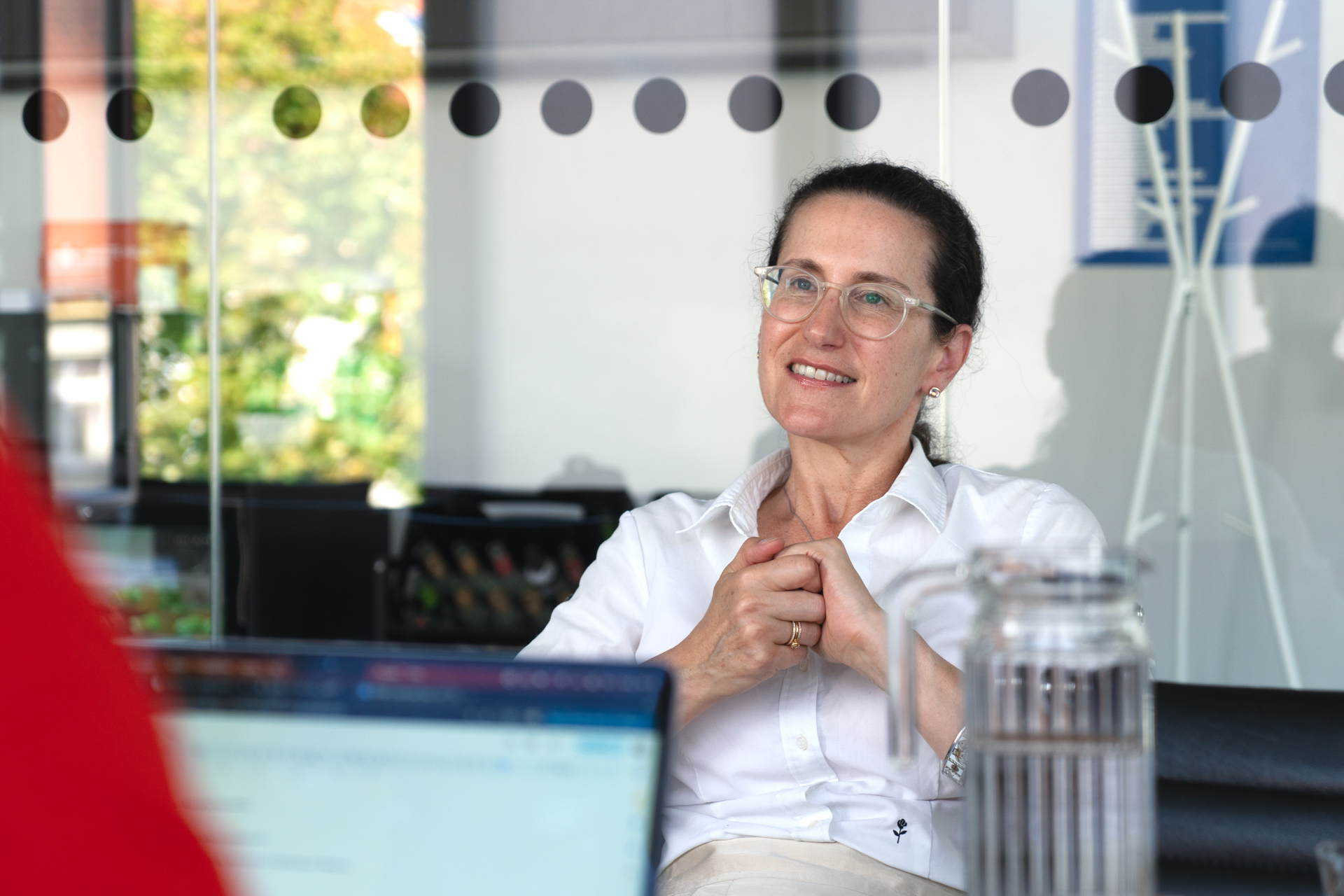
Presumably there are also certain requirements that we need to meet within our own organization for us to work in this way?
Indeed! We need legal practitioners with a real can-do attitude, not any conventional naysayers. Having said that, the legal expertise is obviously essential. Where necessary, we look for the specific colleagues we need and that is also my job. They have to be able to define the terms of collaboration in a way that ensures everything is legally sound while still facilitating our way of working. This calls for both the right mindset and legal expertise. Having these capabilities recognized externally is then the second step. As a start-up within government, we’re often regarded as “the young rebels.” But we have a great deal of expertise here, specifically in our domain.
Do you feel that DigitalService is still a start-up?
Oh, absolutely. After all, one of the areas we still excel in is being highly adaptable to new things.
Within the legal team, how do you create space for experimentation while ensuring certainty?
By putting structures in place for this rapidly growing organization. We prioritize eliminating unnecessary approval steps. We want our colleagues to have the power to make their own decisions, for instance in relation to the tools that are used. While there have to be checks that ensure data protection and IT security are maintained, our colleagues can decide for themselves whether it makes sense to use particular tools. After a couple of months, we assess whether everyone is handling this decision-making freedom responsibly.
We also want to ensure our colleagues have access to legal expertise that is directly relevant to the problem at hand. Take, for example, data protection and IT security: we always integrate colleagues with skills in these areas into the project teams at a very early stage instead of waiting until the end and then seeking approval from the relevant high-ups. We work in this way because we firmly believe that not every decision has to be rubber-stamped by six, seven, or eight people. More approvals doesn’t make them better. We always want to empower our colleagues in this way. Where we’re not quite there yet, we first rely on strict approval processes.
What do colleagues need to bring to the table for this?
Idealism and resilience. The challenges in transforming public administration are structural rather than seasonal. Instead of convincing just one project partner of the benefits of a different kind of contract, we have to put this effort in every time. And we don’t see that changing anytime soon. That’s why we need people who believe in the value of what we do and don’t throw in the towel early.
How did you come to advocate for this? Or to put it another way, why do you put yourself through this? As a lawyer, you could work in a company that already has specific structures in place.
That’s an interesting question. Like most of us here, I believe that Germany needs a more digital and overall more functional administration. I already knew from previous activities that I’m excited about creating these kinds of new structures – prior to joining DigitalService, I helped to establish the Cyber Innovation Hub for the German Armed Forces.
And you’re still active in this area, aren’t you?
Yes. I spend 80 percent of my time with DigitalService. The rest is spent in various ways, including helping top management in the German Navy to introduce agile planning and management instruments within the organization in my capacity as a reserve officer. And I’m also a co-founder and board member of Staat-up e.V.
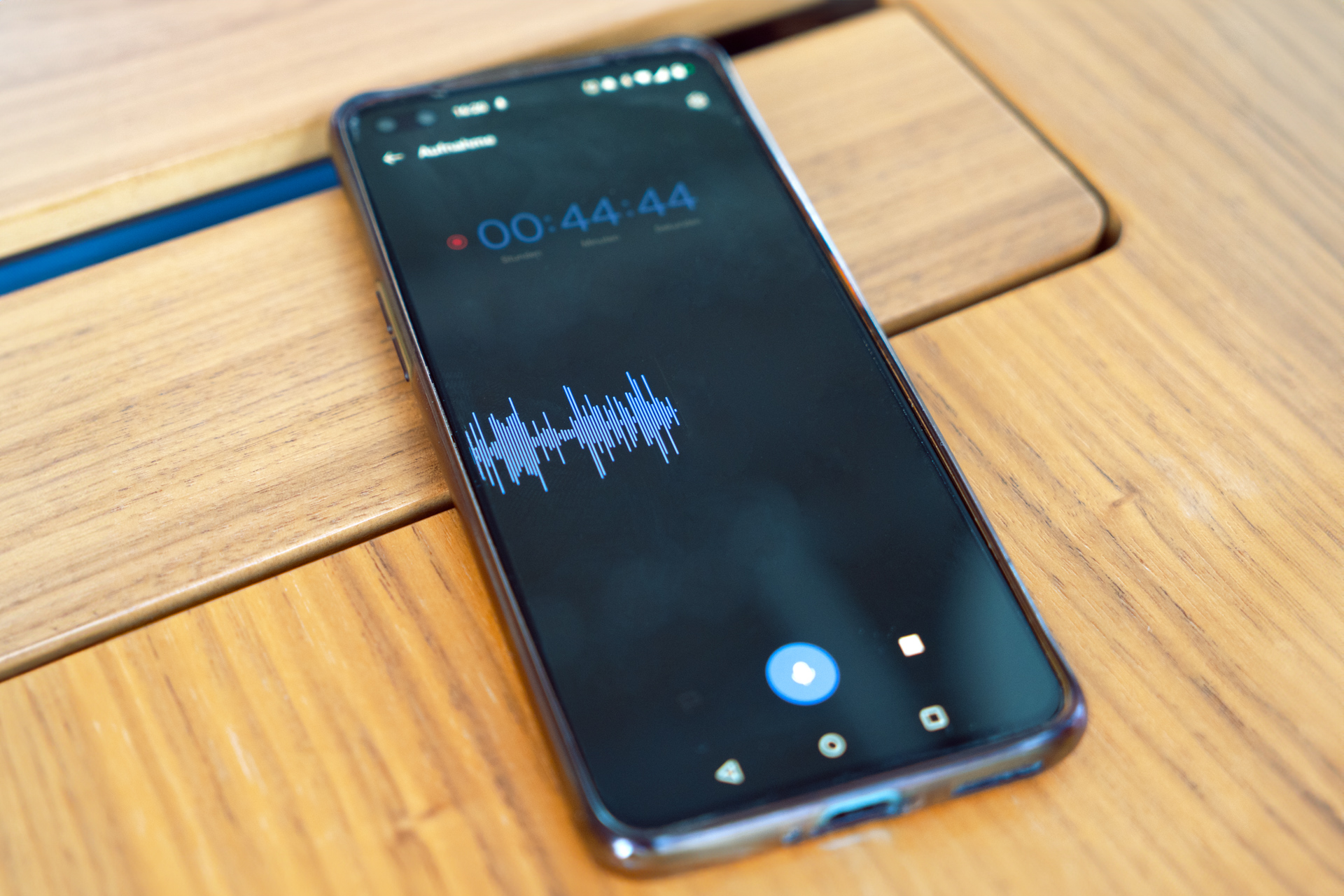
What is the mission of this organization?
Staat-up e.V. is an association of people in public administration who want to play an active role in its transformation. We focus on the personal and cultural skills of our members, such as dealing with risk or building a culture of communication and trust. By strengthening these abilities, we want to empower people in administration to successfully drive change.
There’s more to life than work, of course, so what do you like to do in your spare time?
Like pretty much anyone who lives in a big city, I’ve a few very normal hobbies. I like to do yoga because it combines strengthen, flexibility and relaxation. I also like to cook and play the piano – I’m going through a Chopin phase at the moment. Up until recently, I was a keen skier – for 45 years. But I’ve had to take a break because of a knee injury, and it’s not the first time, either. Maybe my skiing days are drawing to a close.
Last, but not least, if DigitalService were an animal, what would it be?
Oh, that’s difficult. Any animal with an iridescent shine.
Like a rainbow fish?
No, that’s too slippery. You can get a better hold on DigitalService, it has a few spines. An iridescent animal with spines. If anyone can think of such an animal, let me know!
Read more on the topic

